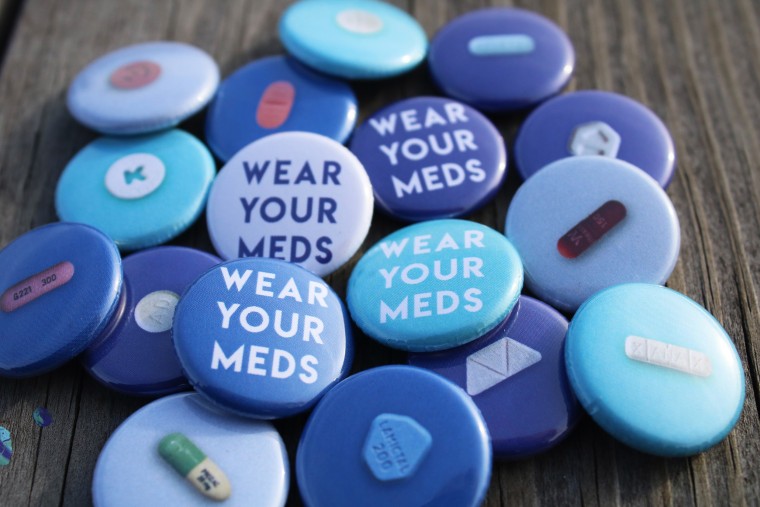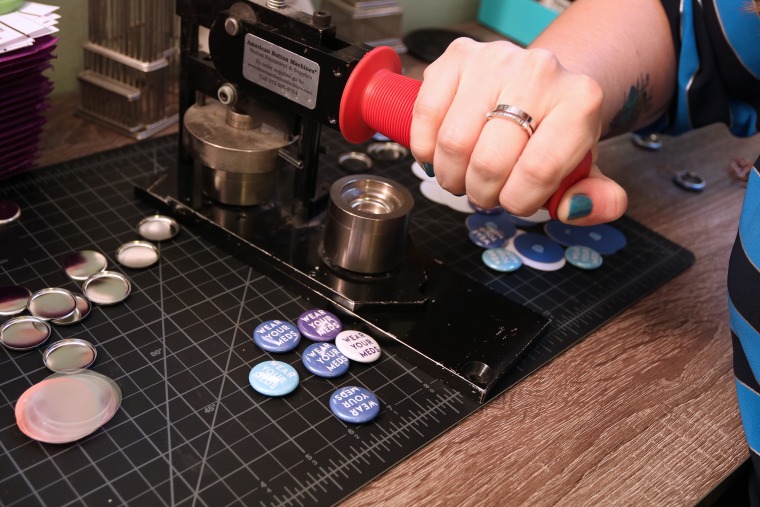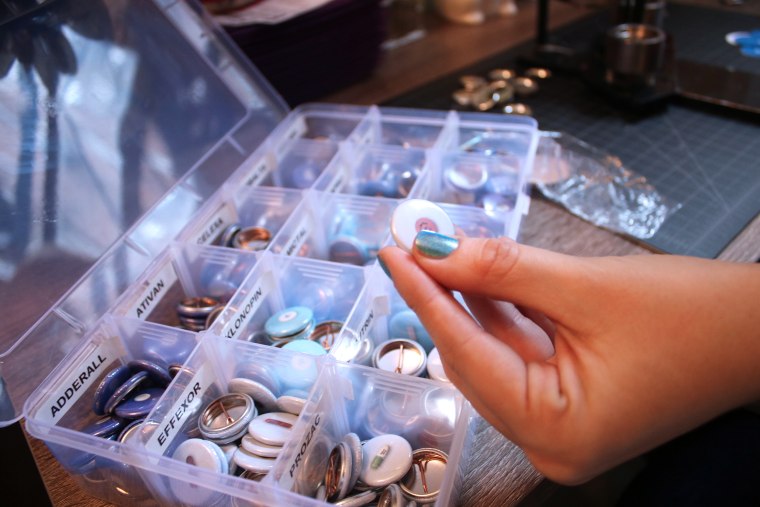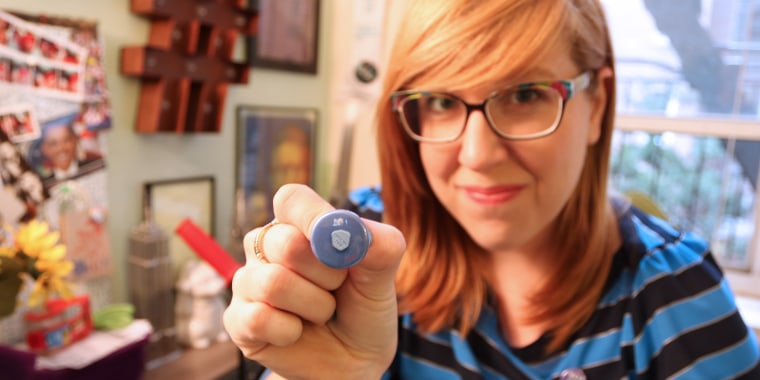Mental health is often regarded as a taboo topic — those who suffer with issues don't openly discuss it, and their friends and family don't ask them about it either. Well, one grad school student is trying to erase that stigma. What started as any other assignment for Lauren Weiss, has now transformed into an mental health awareness campaign — and it’s already having a positive impact.

The assignment for the Miami Ad School of New York student was to come up with a unique ad campaign. The campaign Weiss created has now transformed into Wear Your Meds, which are buttons featuring 14 different psychiatric medications.
“It is really picking up speed and really getting out there. It is very exciting,” Weiss, 29, located in New York City, told TODAY. “I’m trying to reach who I was 10 years ago and hopefully get those people to get more help.”
She makes the buttons by hand with a borrowed button maker. The medications featured are some of the most commonly prescribed ones, including Prozac, lithium, Adderall and Xanax, to name a few. Weiss hoped they will spark conversations.
“The goal of the project is to wear the button and talk to the people around you,” she explained. “Hearing from an expert is not the same as hearing from your friends or family members.”
The idea stemmed from Weiss’ history with mental health treatment and her resistance to taking medication. For years, she experienced periods of mania, where she was so productive she couldn’t sleep or eat; then periods of depression so serious that she struggled to get out of bed. While she suspected she had bipolar disorder, she was too afraid to ask for help.
“I look at all the years where I wasn’t taking medications and the symptoms of mania and depression that impacted my life,” she said. “If I had a little more exposure to people who had gone through the struggle to find the right medication, it could have helped.”

For almost a decade, she shunned treatment until she went to therapy in 2015. After a year and a half, her therapist broached the idea of psychiatric medications and Weiss balked.
“I cried just at the thought of going to the psychiatrist and needing medication. I thought of it as a failing on my part,” Weiss said. “You only ever see these horrible stories that maybe medication doesn’t work for them and makes their lives worse.”
Finally in 2017, she visited a psychiatrist. But the stereotypes she heard about various drugs lingered.
“I said ‘I have bipolar disorder and I don’t want lithium,’” she recalled telling the psychiatrist.
While the doctor assured her that it was the most effective way to treat bipolar disorder, he prescribed her an anti-seizure medication.
“I was lucky it was the first medication I was prescribed and it was effective,” she said.
Wear Your Meds is one of several recent projects aimed at normalizing psychiatric medication use. The Instagram hashtag My Favorite Meds, a play on the podcast My Favorite Murder, features pictures of people holding their medications and explaining how they help their lives. Mental health experts say normalizing psychiatric medicine use remains important.
“It is good to see these campaigns that make a difference,” Dr. Ken Duckworth, medical director of the National Alliance on Mental Illness (NAMI), told TODAY. “Anything you can do to reduce the isolation and shame and the sense you are defective in some way (is positive).”
Duckworth said these campaigns focus solely on medication, which is only one part of mental health treatment (therapy is the other), but it is needed because such prescriptions are so stigmatized.
“You don’t need a campaign to take your diabetes medication. There is no perceived shame,” he said. “We benefit from having this kind of affirmation of engagement in care.”
Weiss hopes the buttons normalize psychiatric drugs, but she also realizes that not everyone can be as open about their mental health.
“I don’t want people to feel uncomfortable,” she said. “There are certain places where they can’t be worn.”

The buttons sell for $3 and Weiss is donating the proceeds to NAMI.
“Hopefully normalizing mental health can help public policy,” she said.
